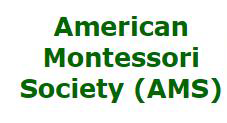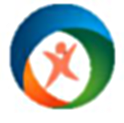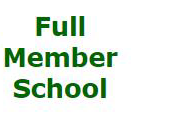Early Childhood (3 years – 6 years) |
|
Quick LinksInfant 6 wks – 18 mos |
Studies by Maria Montessori and her contemporaries, support current brain research that the early years of life are the most crucial time for learning and developing one’s sense of self. Young children go through many sensitive periods of learning, including a sensitive period for order, movement, and language. A Montessori environment is a prepared environment to carefully and thoughtfully meet the needs of the whole child. Children are encouraged to take ownership of the classroom, caring for the materials through Practical Life exercises such as polishing the wood, caring for the plants and sweeping. Young children take a great sense of pride and accomplishment in doing tasks for themselves! The teacher acts as a guide facilitating many opportunities for the children to gain these skills in independence.
The Early Childhood program is for children aged three to six years and includes Kindergarten. Each day, during a long uninterrupted work period, children have opportunities to work independently or have individual, small or large group lessons. The overall goals of this program are to support children as they develop a sense of order, refine their coordination, expand their concentration, grow in independence and practice emerging problem-solving skills. Our language curriculum follows a strong structured phonics program including many language experiences to develop a sight-reading vocabulary. The child/staff ratio of 10:1 allows many one-on-one interactions between adult and student. The youngest students nap in the early afternoon while the older students have an afternoon work period with more advanced geography, science, language and math lessons. Primary children are in a sensitive period for acquiring language. The Sandpaper letters allow the child to learn the phonic sounds and shapes of the letters of the alphabet. This tracing of the shapes prepares the hand to be ready to write. Older students use letters from the Moveable Alphabet to “write” their own stories, even before they are ready to use a pencil! Young children are eager to express themselves and with the use of these hands-on materials they are able to. Montessori-educated children routinely enter first grade as competent readers and writers. The Montessori Math materials include concrete manipulatives that give each child a sensorial experience of mathematics, which allows them to later move into abstraction with a real foundation and understanding of math and its underlying concepts. Young children delight in working with numbers beyond 1000, using materials made from golden beads. The golden bead math material gives the child an overview of the decimal system, helping them to experience place value, and begin to learn addition, subtraction, multiplication, division and fractions as well as problem solving. Children love to play the Montessori “Bank game” retrieving quantities of units, tens, hundreds and thousands from the shelf. The beautiful Sensorial materials including the blocks, beads, rods and spindles are carefully calibrated to heighten, develop, and refine the senses of the child. It is through the five senses the child studies and learns details about the world. When a child has refined senses, he or she will be successful in other problem-solving areas of the classroom such as math and language which require higher level thinking through the use of careful analysis and observation. |




